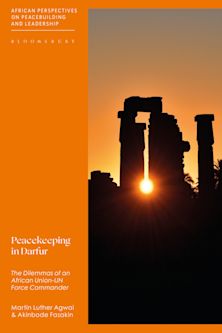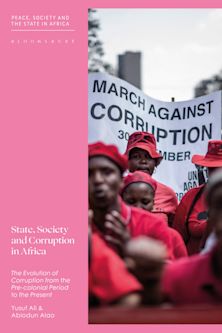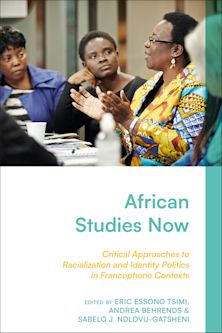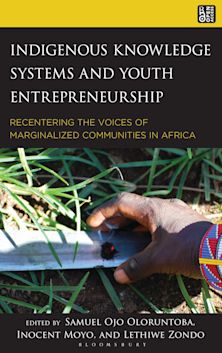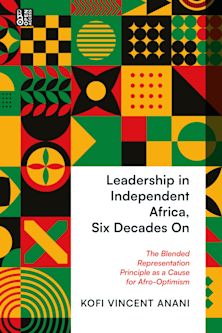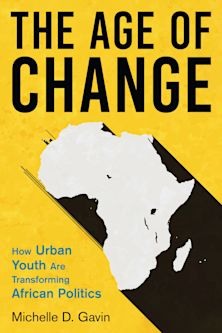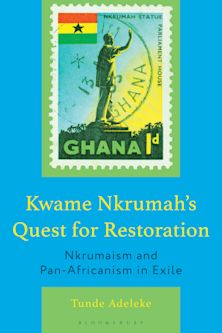- Home
- ACADEMIC
- Politics & International Relations
- African Politics
- Intersectionality and Women’s Access to Justice in Africa
Intersectionality and Women’s Access to Justice in Africa
J. Jarpa Dawuni (Anthology Editor) , Maame Efua Addadzi-Koom (Contributor) , Michael Addaney (Contributor) , Rebecca Emiene Badejogbin (Contributor) , Samia Bourouba (Contributor) , J. Jarpa Dawuni (Contributor) , Jeremie Diye (Contributor) , Vera Duarte (Contributor) , Eghosa O. Ekhator (Contributor) , Rachel Ellett (Contributor) , Omnia Taher Gadalla (Contributor) , Biruh Gemeda Gage (Contributor) , Kennedy Kariseb (Contributor) , Vicki Lawal (Contributor) , Agnes Meroka-Mutua (Contributor) , Baratang Constance Mocumie (Contributor) , Annerita Murungi (Contributor) , Stephen Mutie (Contributor) , Josephine Ndagire (Contributor) , Pedi Obani (Contributor) , Marie Rose Turamwishimiye (Contributor) , Sindiso Mnisi Weeks (Contributor) , Odette Uwineza (Contributor) , Julia Sebutinde (Foreword)
Intersectionality and Women’s Access to Justice in Africa
J. Jarpa Dawuni (Anthology Editor) , Maame Efua Addadzi-Koom (Contributor) , Michael Addaney (Contributor) , Rebecca Emiene Badejogbin (Contributor) , Samia Bourouba (Contributor) , J. Jarpa Dawuni (Contributor) , Jeremie Diye (Contributor) , Vera Duarte (Contributor) , Eghosa O. Ekhator (Contributor) , Rachel Ellett (Contributor) , Omnia Taher Gadalla (Contributor) , Biruh Gemeda Gage (Contributor) , Kennedy Kariseb (Contributor) , Vicki Lawal (Contributor) , Agnes Meroka-Mutua (Contributor) , Baratang Constance Mocumie (Contributor) , Annerita Murungi (Contributor) , Stephen Mutie (Contributor) , Josephine Ndagire (Contributor) , Pedi Obani (Contributor) , Marie Rose Turamwishimiye (Contributor) , Sindiso Mnisi Weeks (Contributor) , Odette Uwineza (Contributor) , Julia Sebutinde (Foreword)
This product is usually dispatched within 1 week
- Delivery and returns info
-
Free US delivery on orders $35 or over
You must sign in to add this item to your wishlist. Please sign in or create an account
Description
Intersectionality and Women's Access to Justice, edited by J. Jarpa Dawuni, propounds layered intersectionality as a paradigm for examining how gendered factors affect women's access to justice, whether as judges or litigants. Through intersectional and decolonial frameworks, the contributors analyze the lived experiences of women and their access to justice by situating the courtroom as both a spatial and a temporal arena for seeking justice (as litigants) and for seeking access to the bench (as judges). This book examines patterns of mutually reinforcing discriminatory practices that women share based on common gender identities and depending on which identities are at play at a given point in time in both traditional and statutory courts. The book provides recommendations for various justice sector providers.
Table of Contents
Foreword
Acknowledgments
Introduction
Chapter 1: Layered Intersectionality and Framing Feminist Legal Discourse on Access to Justice for Women
J. Jarpa Dawuni
Part One: Women and Access to the Bench
Chapter 2: Status of Women Judges in Algeria: Achievements and Pathways for the Future
Samia Bourouba
Chapter 3: Opening the Door for Women in the Cape Verdean Judiciary
Justice Vera Duarte
Chapter 4: Women Judges in Ethiopia
Maame Efua Addadzi-Koom and Biruh Gemeda Gage
Chapter 5: Battle for Women in the Egyptian Judiciary: Reality, Laws, and Aspirations or a Dream Come True?
Omnia Taher Gadalla
Chapter 6: Making Gains for Women's Rights: Using Gender Quotas to Achieve Gender Equality in the Composition of the Supreme Court of Kenya.
Annerita Murungi and Agnes Meroka-Mutua
Chapter 7: “Your Whole Life is an Interview to Get to the Bench:” Gender and Judicial Appointments in Malawi
Rachel Ellett
Chapter 8: Gender Transformation of the Judiciary in South Africa
Justice Constance Ba
Product details
| Published | Oct 28 2022 |
|---|---|
| Format | Hardback |
| Edition | 1st |
| Extent | 440 |
| ISBN | 9781793632678 |
| Imprint | Lexington Books |
| Illustrations | 6 b/w photos; 12 tables; |
| Dimensions | 9 x 6 inches |
| Series | Gender and Sexuality in Africa and the Diaspora |
| Publisher | Bloomsbury Publishing |
About the contributors
Reviews
-
A truly significant publication that engages with critical questions of how intersectional categories impede women’s access to justice in Africa. The book is timely, coming at a point when women in Africa are increasingly taking up leading positions in society and interacting extensively with the law, not only as litigants but also as members and leaders of the judiciary, an all-important institution. This work is a must-read for the judiciary, advocates for women’s access to justice, and the legal profession as a whole.
Yvonne Mokgoro, Former Justice of the Constitutional Court, Republic of South Africa
-
This book sums up the impediments women face in accessing justice by cleverly adopting an intersectional approach that combines historical and empirical analyses to weave a narrative that is both compelling and theoretically grounded. In yet another novel research output, J. Jarpa Dawuni has crafted a masterpiece that contributes to our knowledge about women and law across Africa. By traversing different countries, legal systems and traditions, Intersectionality and Women’s Access to Justice in Africa is an important resource for lawyers, judicial officers, political leaders, policy makers, and women’s rights advocates. A useful resource for advocacy on women’s rights and women’s representation in law.
Florence N. M. Mumba, International Judge, Supreme Court Chamber, ECCC
-
This book explores women’s access to the justice system as judges and as litigants. This is a pioneering work that looks at women as insiders and as outsiders in the justice system. It shows that irrespective of their positionality as insiders or outsiders, women face intersecting challenges in their efforts to navigate and access justice systems. This book departs from the common essentialist portrayal of women as a monolithic group. It recognizes the fact women in any category and within each category, face intersecting layers of simultaneous privilege and discrimination. This is a rich, thoughtful, and diverse compendium of chapters examining a multiplicity of core issues at the center of gender equality and access to justice. It is an instructive and rich comparative study of gender in the justice system. This is an important and immensely valuable book.
Muna Ndulo, William Nelson Cromwell Professor of International and Comparative Law at Cornell Law School

ONLINE RESOURCES
Bloomsbury Collections
This book is available on Bloomsbury Collections where your library has access.













